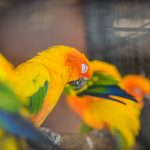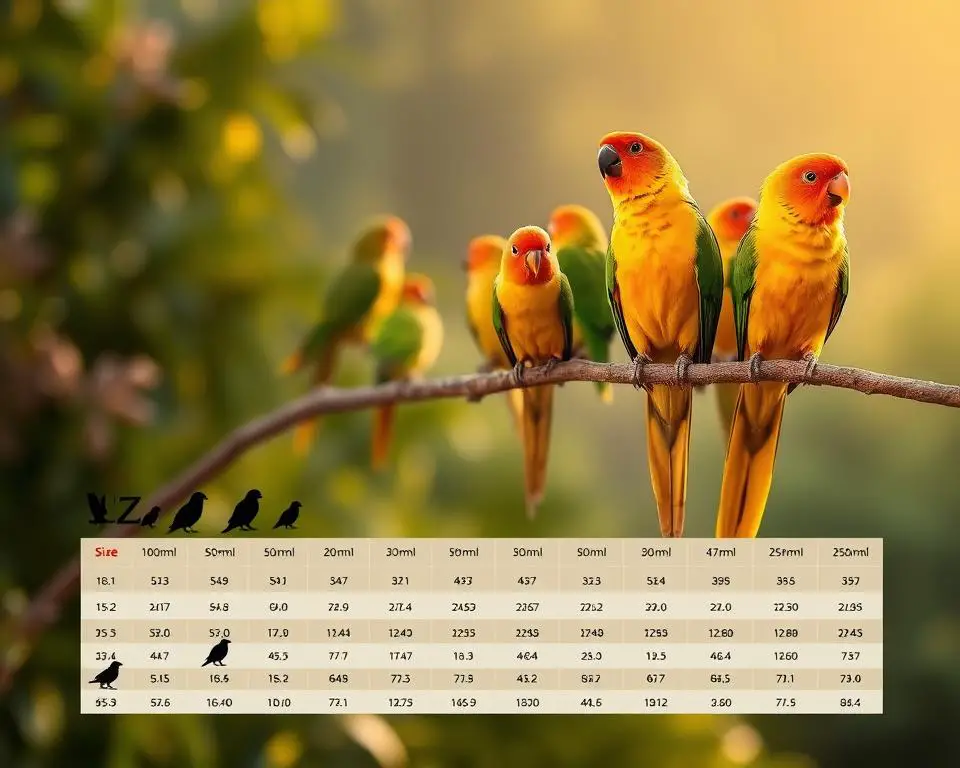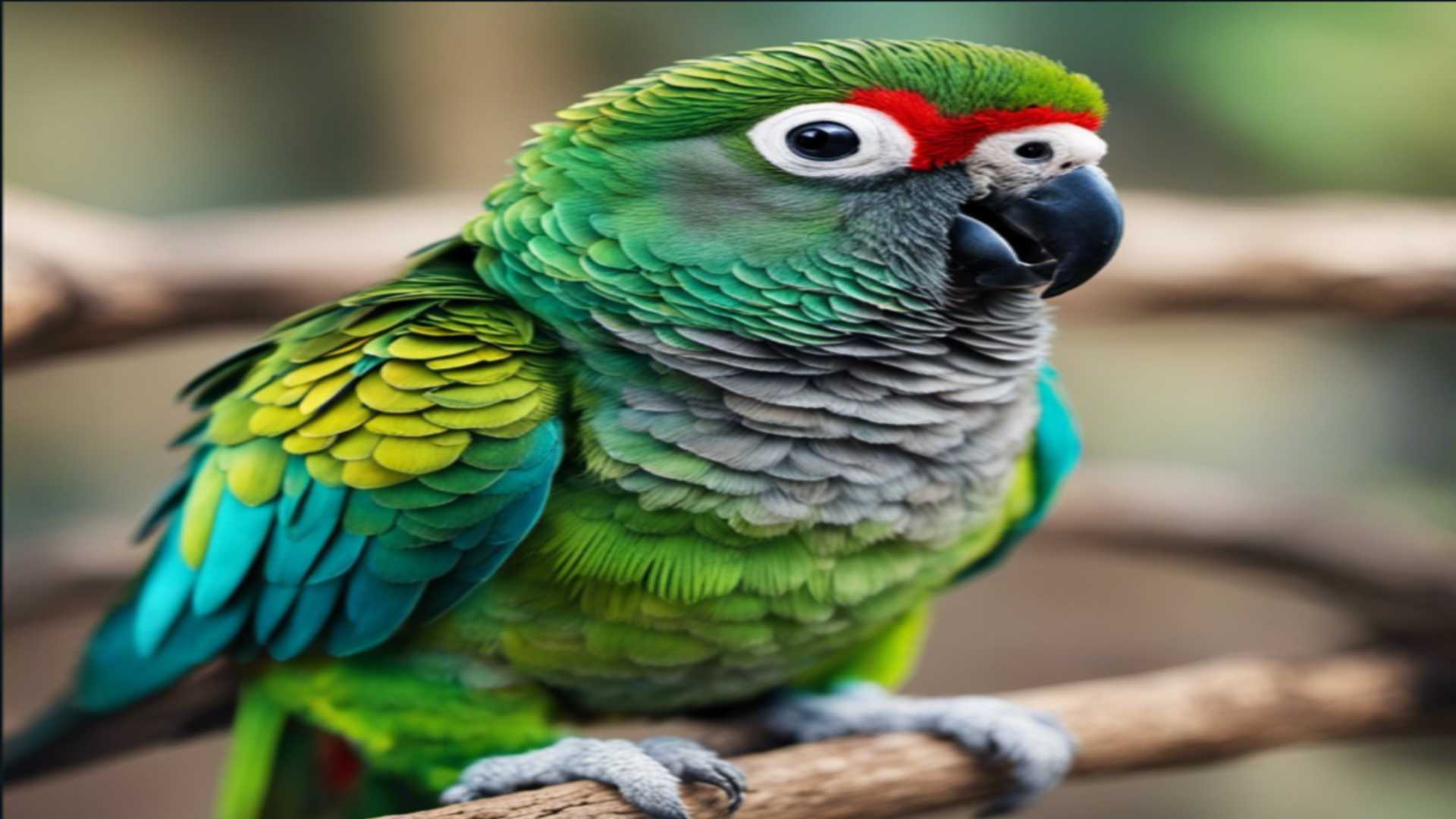Owning animals is always a responsibility. Conures, in particular, require great care and attention.
One typical behavior that can be concerning is when your conure starts grinding its beak. As a bird owner, I know that beak grinding can indicate a variety of things, ranging from normal behavior to health issues.
When I first noticed my conure grinding his beak, I was worried that he might be in pain or discomfort. However, after researching this behavior, I learned that beak grinding could be a sign of contentment or relaxation.
It’s a natural behavior that birds use to keep their beaks trimmed and healthy. Nevertheless, if your bird is grinding its beak excessively, it could be a sign of a health issue that requires attention.
In today’s article, we’ll be discussing some of the possible reasons why your conure is grinding its beak.
Let’s start!
What is beak grinding?
Beak grinding is a common behavior in conures, where they rub their top and bottom beaks together, producing a grinding or clicking sound. This behavior is also known as ‘bruxing.’
Why do conures grind their beaks?
Conures grind their beaks when they are relaxed, content, and comfortable. It is a sign of happiness and good health. Beak grinding can also be a way for conures to self-soothe and relieve stress.
Is it common for conures to grind their beaks?
Beak grinding is a normal behavior in conures. It is a natural way for them to maintain their beaks’ length and shape. Conures may grind their beaks during the day or while sleeping.
Beak grinding can sometimes be a sign of stress or boredom, which can be caused by a lack of activity. If your conure is exhibiting this behavior, it is essential to investigate the possible causes.
For example, consider whether there are changes in the environment, such as loud noises or bright lights, that could be causing distress.
It may also be necessary to provide more stimulating activities for your bird with toys, perches, and other bird-safe items.
When is beak grinding a cause for concern?
Beak grinding is a common behavior in birds and is generally considered a sign of relaxation and contentment. However, excessive beak grinding can be a cause for concern, especially if other symptoms accompany it.
For instance, parrots may grind their beaks as a way to distract themselves from pain or discomfort or to try to alleviate the pain. If your bird is grinding its beak excessively and appears to be in pain or discomfort, it is essential to seek veterinary attention right away.
How can you tell if your conure is grinding its beak?
You can tell if your conure is grinding its beak by listening for the grinding or clicking sound. You may also notice your conure’s head moving slightly up and down or side to side.
Beak grinding is usually accompanied by relaxed body languages, such as closed eyes and fluffed feathers.
Here’s a video that shows you how to tell if your conure is grinding its beak:
Factors that affect beak grinding in conures
There are several factors that can affect beak grinding in conures. These include age, diet, environment, and emotional state.
Let’s see the most common causes.
1. Cage and environment
When it comes to beak grinding in conures, the cage and environment play a significant role. Conures are social birds and require adequate space to move around, play, and interact with their owners.
A cramped cage can lead to boredom and stress, which can cause a conure to grind its beak.
Avoid placing the cage in direct sunlight, near drafty or noisy areas. Ensure the cage is large enough for your conure to move around and play.
Provide your conure with toys, perches, and other enrichment activities to keep it happy and comfortable.
2. Diet and nutrition
A conure’s diet is crucial to its overall health and well-being. A diet that lacks essential nutrients can lead to health problems and stress, which can cause a conure to grind its beak.
Ensure your conure has access to clean water and an overall balanced diet that includes fresh fruits, vegetables, and a high-quality pellet or seed mix.
3. Stress and anxiety
In addition to boredom and lack of interaction, there are several other factors that can cause stress and anxiety in conures, leading to excessive beak grinding.
These include changes in routine or environment, loud noises, and new people or pets in the home.
Read also: How to Stop Your Conures From Fighting (7 Tips)
Preventing beak grinding in conures
It can be challenging to spot any underlying causes of beak grinding in conures since they don’t express facial emotions like other animals, such as dogs.
Fortunately, there are several steps you can take to help prevent excessive beak grinding in conures.
Secure and comfortable environment
If you suspect that your conure is grinding its beak due to stress or anxiety, there are several things you can do to help alleviate the problem.
First and foremost, make sure that your conure is getting enough attention and interaction from you.
Spend time playing with your bird, talking to it, and providing toys and other forms of enrichment.
You may also want to consider providing a companion bird for your conure, as many birds thrive in pairs or small flocks.
It is also important to create a calm and quiet environment for your conure, especially during times of stress.
This may involve providing a quiet room for your bird to rest in or covering its cage with a blanket or towel to provide a sense of security. Stick to a consistent bedtime and wake-up time to establish a routine.
If your conure continues to grind its beak excessively despite your best efforts, it is crucial to seek veterinary attention to rule out any underlying medical conditions.
Identifying the cause of beak grinding
Beak grinding can be a sign of various issues, including health problems, trauma, pain, or injury. It can also be a natural behavior in conures, especially during sleep.
If your conure is grinding its beak excessively and you suspect an underlying issue, observe your bird’s behavior closely.
Look for signs of discomfort, such as decreased appetite, lethargy, or changes in stool color or consistency. If you notice any of these symptoms, it’s important to address the underlying issue as soon as possible.
Read also: When Do Conures Molt? (A Bird Owner Explains)
Summary
Before we move on to the conclusion, we’ve summarized this article into a short list of key points for you to remember:
- Beak grinding is a common behavior in conures, and it can indicate various things, from normal behavior to health issues.
- Conures grind their beaks when they are relaxed, content, and comfortable, and it is a natural way for them to maintain their beaks’ length and shape.
- Excessive beak grinding can be a cause for concern, especially if other symptoms accompany it, and it may indicate stress, boredom, or pain.
- The factors that affect beak grinding in conures include age, diet, environment, and emotional state, and it is crucial to provide a secure and comfortable environment, a balanced diet, and stimulation to prevent excessive beak grinding.
Conclusion
After researching and observing my conure’s behavior, I have come to the understanding that beak grinding is a natural and normal behavior for conures.
It is a sign that they are relaxed and content in their environment. Understanding our parrot’s behavior takes a lot of time, but it is essential to recognize when something is wrong and seek medical attention accordingly.
I hope this article has helped you understand why your conure may be grinding its beak and how to monitor best or address the issue.
Want to learn more about conures?
Ready to boost your knowledge to the next level? If so, check out the articles below:





